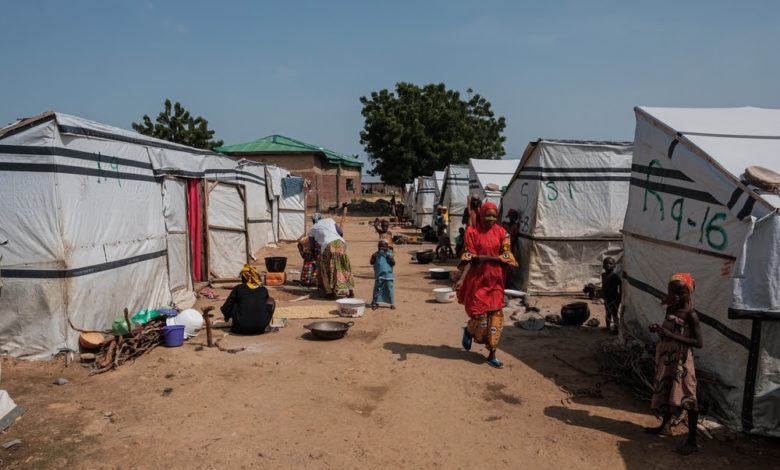Civilians In Northwest Nigeria State Face Renewed Violence Threats As Rainy Season Commences
Zamfara State, Northwest Nigeria, is experiencing a spike in attacks and displacement of communities.

Persistent violent attacks in recent weeks have led to dozens of deaths and new displacements in Zamfara State, the epicentre of the violence ravaging Northwestern Nigeria.
On Friday, June 11, 2021, at least 61 persons were killed after a terror group riding motorcycles raided a community in Zurmi Local Government Area of the state.
A few days earlier on Tuesday, June 8, 60 women were reported to have been kidnapped in three villages; Munawa, Malele, and Randa, under Maru Local Government Area.
Violent terror groups notorious for moving on motorcycles and using unprotected forest areas as safe havens have launched a campaign to depopulate communities and disrupt farming activities before the environmental impact of the rainy season fully kicks in.
The carnage is a part of a series of attacks perpetrated by diverse armed groups targeting farming and pastoralists communities, schools, and commuters in the Northwest, and some neighbouring states in the North-central, particularly Niger State.
What began as a conflict between herders and farmers as well as cattle rustling by criminal gangs has turned into a cycle of revenge attacks, abduction, and protracted lawlessness, despite military and government interventions, including a Zamfara State-led Amnesty and peace program.
Bello Matawalle, Governor of Zamfara lamented during a public address on Saturday, June 12, that “In recent weeks, the act of banditry has reverted to the ugly dimensions it had, before the coming of my administration.”
He added that the marauders kill without regard for any rules of sanity, noting that women, the elderly, and children are not spared.
“As a result, a large number of people have been displaced in nearly every town in the state” Matawalle stated.
In reaction to the attacks, the governor in a series of tweets posted on his Twitter handle on June 2, said the Zamfara State Police and other government security agencies are to effectively implement the Presidential order to shoot on sight at bandits, persons, or groups of people seen with Ak-47 or any weapons.
“Only those approved by law or the security agencies are to carry guns and other sophisticated weapons, anyone found in unlawful possession of guns should be shot on the spot,” the governor quipped.
In the past few years, Zamfara State has attempted to promote amnesty, disengagement, and reintegration as pathways to peace. Authorities have also invested in the Rural Grazing Area (RUGA) settlement at Maradun Local Government to end the violence and ease tension between herders and farmers.
However, the security situation, as explained by the Governor in his June 12 address, has deteriorated with waves of attacks and displacements.
According to International Organization for Migration (IOM) Displacement Tracking Matrix report published on June 14, violence has led to new waves of population displacement in Maru and Zurmi Local Government Areas (LGAs) of Zamfara State, Bindawa and Faskari areas of Katsina State, and Sabon Birni Local Government Areas of Sokoto State.
Yusuf Anka, a conflict analyst said a spike in attacks happens as the rainy season starts before calm returns and armed groups stay back in their sanctuaries due to the wet environment and an unfavourable terrain for mobility.
He added that violence resumes as the rainy season draws back and farmers prepare to harvest. However, in some cases, farmers are lucky to get demands from attackers, enabling them to harvest.
An earlier IOM report recorded 124,678 displaced persons in Zamfara and 108,968 individuals in Katsina. It also stated that the crisis led to the forced displacement of an estimated 45,000 Nigerian refugees in Niger Republic.
In June, one of few aid organisations in Zamfara, the international medical organisation Médecins Sans Frontières (MSF) also known as Doctors Without Borders, called for an urgent humanitarian response.
“Our teams in Zamfara State have witnessed an alarming rise in preventable illnesses associated with a lack of food, drinking water, shelter and vaccinations,” said MSF’s Dr Godwin Emudanohwo.
Social, economic, and environmental drivers mutually reinforce each other to sustain the violence and risk faced by civilians in Zamfara and other affected areas of Africa.
Support Our Journalism
There are millions of ordinary people affected by conflict in Africa whose stories are missing in the mainstream media. HumAngle is determined to tell those challenging and under-reported stories, hoping that the people impacted by these conflicts will find the safety and security they deserve.
To ensure that we continue to provide public service coverage, we have a small favour to ask you. We want you to be part of our journalistic endeavour by contributing a token to us.
Your donation will further promote a robust, free, and independent media.
Donate Here




